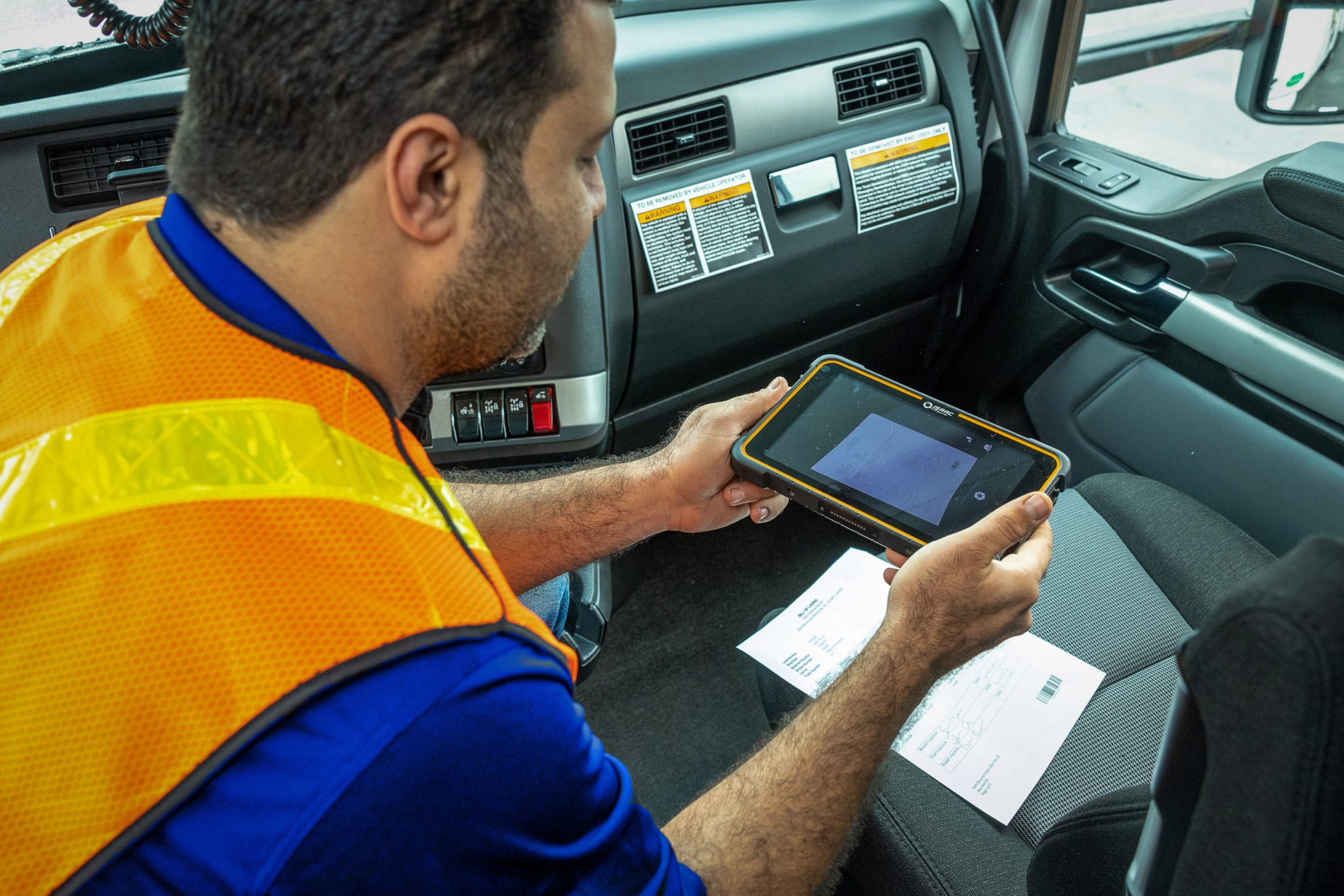ISAAC evolves in-cab tech with automation and predictive workflows

ISAAC continues to evolve how in-cab technology makes life easier for truck drivers and fleet managers with integrated TMS data and apps.
As a trucking tech provider, the company works closely with fleets to deploy electronic logging devices (ELDs) and telematics systems that provide support for smart compliance, predictive workflows, fleet-wide optimizations, and seamless all-in-one integrations that connect people and technology. Automation plays a significant role to enable these benefits for fleets.
ISAAC CEO and Co-founder, Jacques DeLarochelliere, believes that ELDs can support vital aspects of automated fleet management processes by giving people timely answers when needed. “Automation is about having the answers at the right time, not chasing the answers,” he said in an interview.
ELD and telematics systems can provide a central data hub that pushes the right data to the right people at the right time. Simultaneously, the systems can record individual truck data that connects into automated and predictive workflows. ISAAC’s solution offers an easy-to-use system that simplifies trucking and saves time for drivers. Instead of filling in logbooks manually, drivers can rely on ISAAC to automatically manage hours-of-service.
Before the widespread use of ELDs in trucking, drivers would have to stop what they were doing multiple times during the workday to make sure that their paper logbook remained up to date. Clearly, ELDs eliminated pen and paper logs for drivers. ISAAC saw the potential benefits of automation across an entire fleet, so the company went beyond ELDs to streamline the day-to-day work of drivers, fleet managers, and dispatchers.
Their in-cab technology and telematics connect drivers to predictive workflows that let them focus on operating trucks. When drivers need to stop to comply with HOS regulations, the system provides notification at the right time to find a place to park. The technology focuses on Canadian and U.S. HOS regulations while drivers focus on driving.
“Drivers love the ISAAC tablet and the way it interacts with them,” said Janet Topic, Trimac’s Chief Information Officer. “They have embraced the tool and are using it for DVIRs as well. It’s intuitive.”
ISAAC’s in-cab system also connects drivers with back offices to support efficient compliance and communication. Drivers can complete a DVIR on a tablet and send pictures to maintenance and fleet managers if an issue pops up. During a roadside inspection, drivers can quickly show reports to inspectors and get moving again quickly.
If the vehicle fails an inspection, or a driver discovers an issue during a pre- or post-trip inspection, dispatch and maintenance are notified immediately. Similarly, if the driver needs to declare an en route defect because of a problem that happens while on the highway, the system ensures that the office is notified right away.
As well as saving time, the ISAAC solution evolved to reduce the overall amount of work needed to manage fleets and ensure compliance with regulations across Canada and the United States.
When drivers get the information they need in a timely manner, they don’t need to request information from personnel at the office. The system ‘predicts’ the information required for the next step of the workflow, so drivers stay focused on their trip. In turn, fleet dispatchers and managers get to concentrate on other work that needs to be done, instead of relaying basic information to drivers.
ISAAC considers smart compliance a good example of how they go beyond ELDs to optimize trucking for drivers and fleets. As a trucking-focused business, ISAAC shows an understanding of industry challenges, such as driver retention and turnover. ISAAC works closely with fleets to deploy in-cab solutions that drivers love to use, while providing data-driven expertise on driver retention and satisfaction.
Have your say
This is a moderated forum. Comments will no longer be published unless they are accompanied by a first and last name and a verifiable email address. (Today's Trucking will not publish or share the email address.) Profane language and content deemed to be libelous, racist, or threatening in nature will not be published under any circumstances.